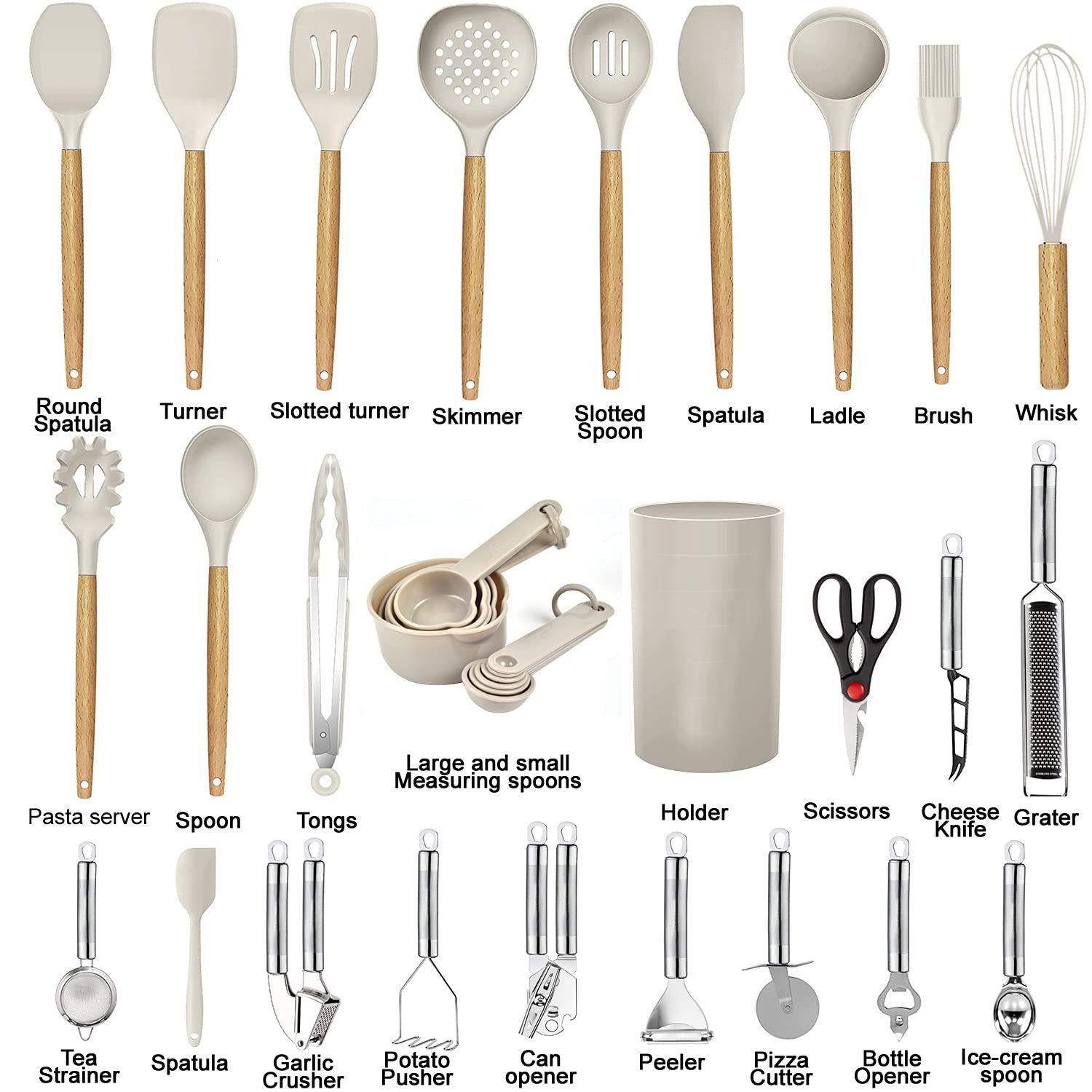Silicone products have become an integral part of modern life, known for their exceptional versatility and durability. From household items to industrial applications, silicone’s unique properties make it an invaluable material. This article delves into the diverse uses, benefits, and environmental impacts of silicone products, providing a thorough understanding of why they are so widely used.
What is Silicone?
Silicone is a synthetic polymer made from silicon, oxygen, carbon, and hydrogen. Its unique chemical structure gives it a wide range of useful properties, including flexibility, heat resistance, and durability. These properties make silicone ideal for a variety of applications across different industries.
Types of Silicone Products
Silicone products are categorized into several types based on their specific uses:
- Silicone Kitchenware
- Silicone Medical Devices
- Silicone Industrial Components
- Silicone Personal Care Products
1. Silicone Kitchenware
Silicone kitchenware is popular for its safety, non-stick properties, and ease of cleaning. Some common silicone kitchen products include:
- Baking Mats and Sheets: These provide a non-stick surface for baking, making it easier to remove baked goods and clean up afterward.
- Cooking Utensils: Spatulas, whisks, and tongs made from silicone can withstand high temperatures and are safe to use with non-stick cookware.
- Molds and Trays: Silicone molds for cakes, muffins, and other baked goods are flexible and easy to use, allowing for intricate designs.
2. Silicone Medical Devices
Silicone is extensively used in the medical field due to its biocompatibility and stability. Common medical silicone products include:
- Implants: Silicone is used in a variety of implants, such as breast implants and prosthetic devices, because it is non-reactive and durable.
- Tubing and Catheters: Silicone tubing and catheters are used in many medical applications because they are flexible, non-toxic, and resistant to bacterial growth.
- Respiratory Equipment: Silicone masks and other respiratory devices provide a comfortable and secure fit, making them ideal for long-term use.
3. Silicone Industrial Components
Silicone’s resistance to extreme temperatures and chemicals makes it valuable in industrial applications. Some key silicone industrial components include:
- Seals and Gaskets: Used to create airtight and watertight seals in machinery, ensuring proper function and longevity.
- O-rings: Essential in preventing leaks and maintaining pressure in various mechanical systems.
- Adhesives and Sealants: Silicone-based adhesives and sealants are used in construction and automotive industries for their strong bonding and flexibility.
4. Silicone Personal Care Products
Silicone is gentle on the skin, making it ideal for personal care products. Examples include:
- Menstrual Cups: These eco-friendly alternatives to traditional feminine hygiene products are made from medical-grade silicone.
- Baby Products: Silicone teething rings and bottle nipples are safe and durable, making them popular choices for parents.
- Beauty Tools: Silicone makeup brushes and cleansing pads are gentle and effective, suitable for sensitive skin.
Benefits of Silicone Products
Silicone products offer a wide range of benefits, making them a preferred choice in many applications. Key benefits include:
- Durability: Silicone products are long-lasting and resistant to wear and tear, reducing the need for frequent replacements.
- Heat and Cold Resistance: Silicone can withstand extreme temperatures, from freezing to high heat, without degrading.
- Non-Toxicity: Silicone is non-reactive and safe for use in food and medical applications.
- Flexibility: Its flexible nature allows for easy molding into various shapes and forms.
- Chemical Resistance: Silicone is resistant to water, oils, and chemicals, enhancing its durability in various environments.
Choosing Quality Silicone Products
To ensure you are purchasing high-quality silicone products, consider the following factors:
- Material Grade: Opt for food-grade or medical-grade silicone, especially for products that come into contact with food or the human body.
- Certifications: Look for products that have certifications such as FDA approval to ensure safety and quality.
- Reputation: Purchase from reputable brands and manufacturers known for producing reliable silicone products.
- Customer Reviews: Read reviews and ratings from other customers to gauge the product’s performance and reliability.
Environmental Impact of Silicone Products
Silicone is often seen as a more environmentally friendly option compared to plastic due to its durability and reusability. While the production of silicone is energy-intensive, its long lifespan means that fewer products need to be replaced over time, reducing overall waste. Additionally, many silicone products are recyclable, though they require specialized recycling processes.
Innovations in Silicone Technology
Continuous advancements in silicone technology are expanding its applications and improving its properties. Some notable innovations include:
- High-Performance Coatings: New coatings enhance the durability and functionality of silicone products, making them suitable for more demanding applications.
- Biodegradable Silicone: Research is ongoing to develop silicone materials that are biodegradable, further reducing their environmental impact.
- Enhanced Flexibility and Strength: Improved formulations provide better performance in applications requiring high flexibility and strength.
Conclusion
Silicone products have become essential in various aspects of modern life due to their unique properties and benefits. From kitchenware to medical devices and industrial components, silicone continues to demonstrate its versatility and reliability. By understanding the different types, benefits, and environmental considerations of silicone products, consumers can make informed decisions that enhance their daily lives and contribute to sustainability.









